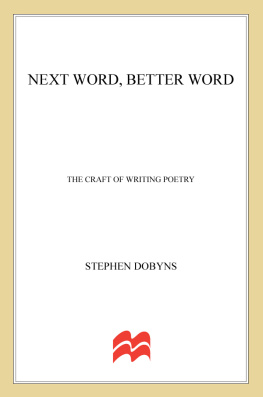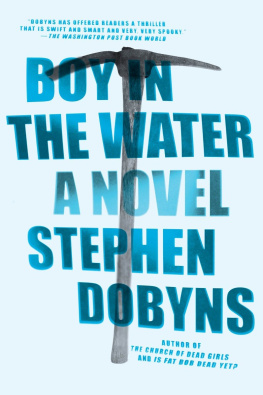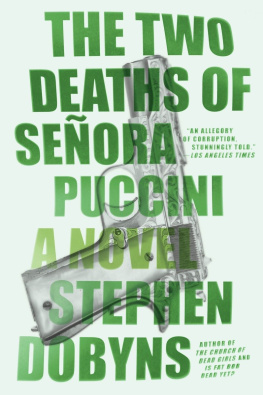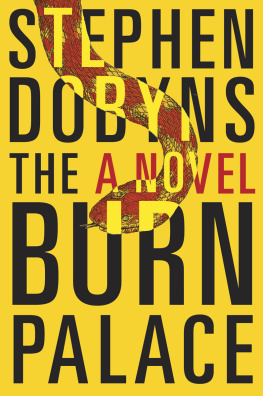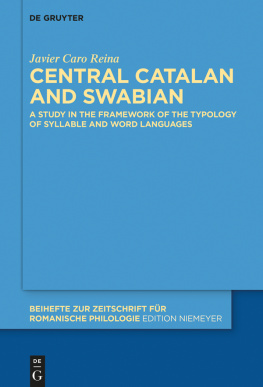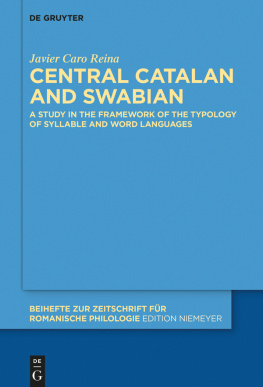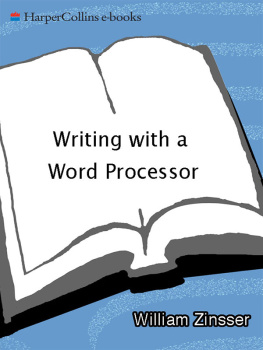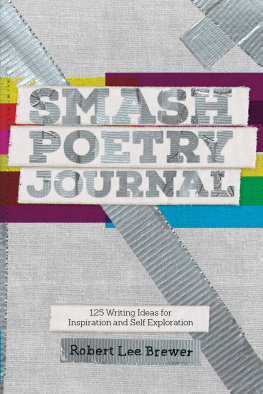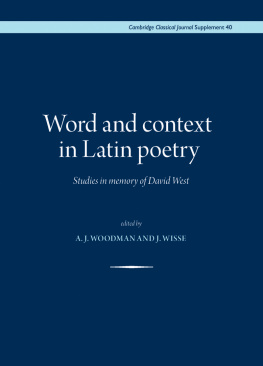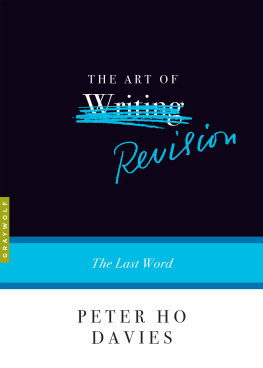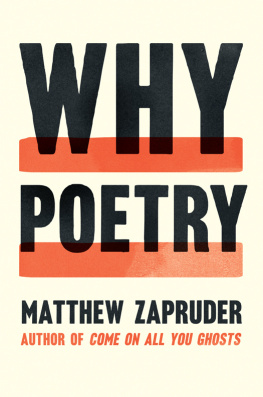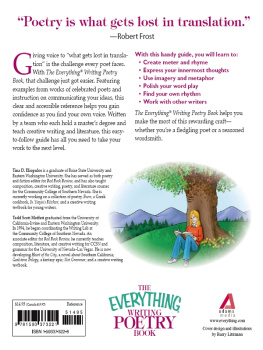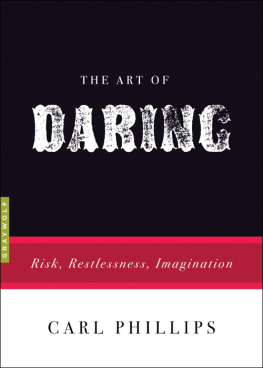Dobyns - Next word, better word: the craft of writing poetry
Here you can read online Dobyns - Next word, better word: the craft of writing poetry full text of the book (entire story) in english for free. Download pdf and epub, get meaning, cover and reviews about this ebook. City: New York, year: 2011, publisher: St. Martins Press;Palgrave Macmillan, genre: Romance novel. Description of the work, (preface) as well as reviews are available. Best literature library LitArk.com created for fans of good reading and offers a wide selection of genres:
Romance novel
Science fiction
Adventure
Detective
Science
History
Home and family
Prose
Art
Politics
Computer
Non-fiction
Religion
Business
Children
Humor
Choose a favorite category and find really read worthwhile books. Enjoy immersion in the world of imagination, feel the emotions of the characters or learn something new for yourself, make an fascinating discovery.
- Book:Next word, better word: the craft of writing poetry
- Author:
- Publisher:St. Martins Press;Palgrave Macmillan
- Genre:
- Year:2011
- City:New York
- Rating:5 / 5
- Favourites:Add to favourites
- Your mark:
- 100
- 1
- 2
- 3
- 4
- 5
Next word, better word: the craft of writing poetry: summary, description and annotation
We offer to read an annotation, description, summary or preface (depends on what the author of the book "Next word, better word: the craft of writing poetry" wrote himself). If you haven't found the necessary information about the book — write in the comments, we will try to find it.
Next word, better word: the craft of writing poetry — read online for free the complete book (whole text) full work
Below is the text of the book, divided by pages. System saving the place of the last page read, allows you to conveniently read the book "Next word, better word: the craft of writing poetry" online for free, without having to search again every time where you left off. Put a bookmark, and you can go to the page where you finished reading at any time.
Font size:
Interval:
Bookmark:
praise for Next Word, Better Word
Stephen Dobyns, a great American poet, gives a lucid explanation of his craft. This book is valuable for poets, filmmakers, novelists, playwrights, and anyone interested in the clear expression of original thought.
Fred Wiseman, filmmaker
Stephen Dobyns new book on poetic craft defines, with an impressive breadth of reference, what is required for poets to give their subjects significant form, a nuanced aesthetic embodiment that is true to the poets deepest concerns and open to a process of discovery, resistant to any idea that might limit a full exploration of the chosen materials. This book should be of genuine interest not only to apprentice poets but to anyone who wants to understand the choices involved in making a poem substantial and persuasive.
Carl Dennis, winner of the Pulitzer Prize in Poetry
and author of Poetry as Persuasion
Robert Frost said that a poem must begin in delight and end in wisdom. Here is the rare book about the process of poetry that does both, and brilliantly. Luminous erudition coupled with a palpable love for subject, Next Word, Better Word is sure to be an education and an inspiration for student poets, seasoned poets, anddare I saytheres plenty here for prose writers, too. Dobyns not only takes us deeply into the matter of the poets craft, but into the poet himself: how the knowledge necessary to write a good poem intersects with the enlightenment born of experience.
Binnie Kirshenbaum, writing chair, School of the Arts Writing
Program, Columbia University and author of The Scenic Route
Serious but playful; stylish and true; honest yet magicalthis is a comprehensive and beautifully written book about the thorny, joyous art of making poems. It is the best contemporary guide to poetry I have read.
David Morley, national teaching fellow, University
of Warwick and author of Enchantment
Stephen Dobyns states in his introduction that writing a poem is one of the ways to love the world, and the rest of the book demonstrates, in exquisite, careful detail, exactly how. Full of invaluable insights and basic information for aspiring poets, Dobyns collection also has much to say to his peersand he peoples his essays with some of the arts most engaging practitioners, from the well-known, such as Baudelaire and Rilke, to those who will be new to many, such as the Russian Acmeists, and most valuably, he gives us their poetry as well their thoughts and lives. Its a book to study, to return to, to annotate with marginalia, but its also a book to curl up with and simply enjoy.
Cole Swensen, professor, Iowa Writers Workshop
and author of Goest
Stephen Dobyns unpacks the essential kit of the trade, all the taken-for-granted tools which poets think with and work with to find out what their poems want to say: line breaks, how syllables behave, the hide-and-seek of metaphor, how a poem hangs on the page like a bird in flight. He enters into dialogue with a galaxy of poets, to help us listen better to poems, to read better, and also maybe write better this most central of arts.
Ruth Padel, author of Darwin: A Life in Poems
and The Poem and the Journey
the craft of writing poetry
stephen dobyns

The author and publisher have provided this e-book to you for your personal use only. You may not make this e-book publicly available in any way. Copyright infringement is against the law. If you believe the copy of this e-book you are reading infringes on the authors copyright, please notify the publisher at: us.macmillanusa.com/piracy.
NEXT WORD, BETTER WORD
Copyright Stephen Dobyns, 2011.
All rights reserved.
For information, address St. Martins Press, 175 Fifth Avenue, New York, N.Y. 10010.
First published in 2011 by PALGRAVE MACMILLAN in the U.S.a division of St. Martins Press LLC, 175 Fifth Avenue, New York, NY 10010.
ISBN: 9780230621800 (paperback)
ISBN: 9780230621824 (hardcover)
Our eBooks may be purchased in bulk for promotional, educational, or business use. Please contact the Macmillan Corporate and Premium Sales Department at 1-800-221-7945, ext. 5442, or by e-mail at .
Library of Congress Cataloging-in-Publication Data
Dobyns, Stephen, 1941
Next word, better word : the craft of writing poetry / Stephen Dobyns.
p. cm.
ISBN 9780230621824 (hardback)ISBN 9780230621800 ()
1. PoetryAuthorship. 2. Creation (Literary, artistic, etc.) 3. Poetics. I. Title.
PN1059.A9D63 2011
808.1dc22
2010045299
A catalogue record of the book is available from the British Library.
Design by Letra Libre
First edition: April 2011
10 9 8 7 6 5 4 3 2 1
Printed in the United States of America.
When I was 18, I met a married couple who remained my best friends for many years. They lived on a farm outside of Lansing, Michigan, and had moved there sometime before from Greenwich Village, where they had been active in little theater and knew a large number of poets and novelists. The man was 16 years older than I, the woman eight. At the age of 18, the name Greenwich Village was, for me, always italicized and underlined. I had been there a few times in the previous two years, visiting bookstores and bars and staring at young, long-haired, and braless women who wore peasant dresses and a lot of Mexican jewelry. I couldnt imagine a nicer place to live.
My friends were not farmers; rather, they used their hundred acres for dog-walking, and a local man leased their fields to grow wheat. What my friends did instead was read and have interesting conversations. Bookcases filled half the house. The woman was an incredibly fast reader, and each year she would reread her set of Wilkie Collins. In fact, it seemed to me that they had read almost everything. The man also wrote poetry in a style that later reminded me of Edith Sitwell, and he made innumerable lists that he kept very private.
One thing that I liked about my friends was that they took me seriously, were never patronizing, and did not display their knowledge like a flag. This in fact was how they treated everyone. The man volunteered tutoring local high school boys who had gotten into trouble. In a small book-lined study thick with cigarette smoke, they would talk passionately about Plato, Shakespeare, and sometimes Edith Sitwell. The woman volunteered with VISTA programs in Lansing. She had inherited some money, not a lot, but they could live on it. What they did was read, listen to music, look at great art, tutor, talk civilly to people, and write.
Of course I romanticized themafter all, I was 18but I also felt sure they had the sort of life I would like for myself. Actually, they legitimized that sort of life for me. For several years, I had been writing dreadful poems and stories, and I also read a lot: a mix of Philip K. Dick, Camus, and Sartre, which did nothing for my psychological stability. But they suggested many books for me to read, some of which I found peculiar, like William Beckfords Vathek, Frank Wedekinds Lulu plays, and M. P. Shiels The Purple Cloud. And I read Yeats and the Yellow Book poets, and turned more in the direction of poetry. After all, it was short. But despite this seeming advantage, I also thought poetry was something from which I could always learn more. It was a country whose boundaries were never fixed, that always seemed to expand. My friends encouraged me in this.
Like many ideas I had when young, this one turned out to be more complicated than anticipated. The main problem with turning the world into language is that its, well, impossible. The word is always less than the thing it is meant to represent. No matter how complicated, exact, true, and beautiful the language may become, it is always a diminishment of the reality described. In journalism this doesnt matter; the reporter knows that he or she is reporting the substance of an event, not the event itself. But good poetry deals with emotions, and its purpose is not just to give the reader a sense of those emotions, but also to let the reader experience them as directly as possible. This is trickier than I had first thought.
Next pageFont size:
Interval:
Bookmark:
Similar books «Next word, better word: the craft of writing poetry»
Look at similar books to Next word, better word: the craft of writing poetry. We have selected literature similar in name and meaning in the hope of providing readers with more options to find new, interesting, not yet read works.
Discussion, reviews of the book Next word, better word: the craft of writing poetry and just readers' own opinions. Leave your comments, write what you think about the work, its meaning or the main characters. Specify what exactly you liked and what you didn't like, and why you think so.

